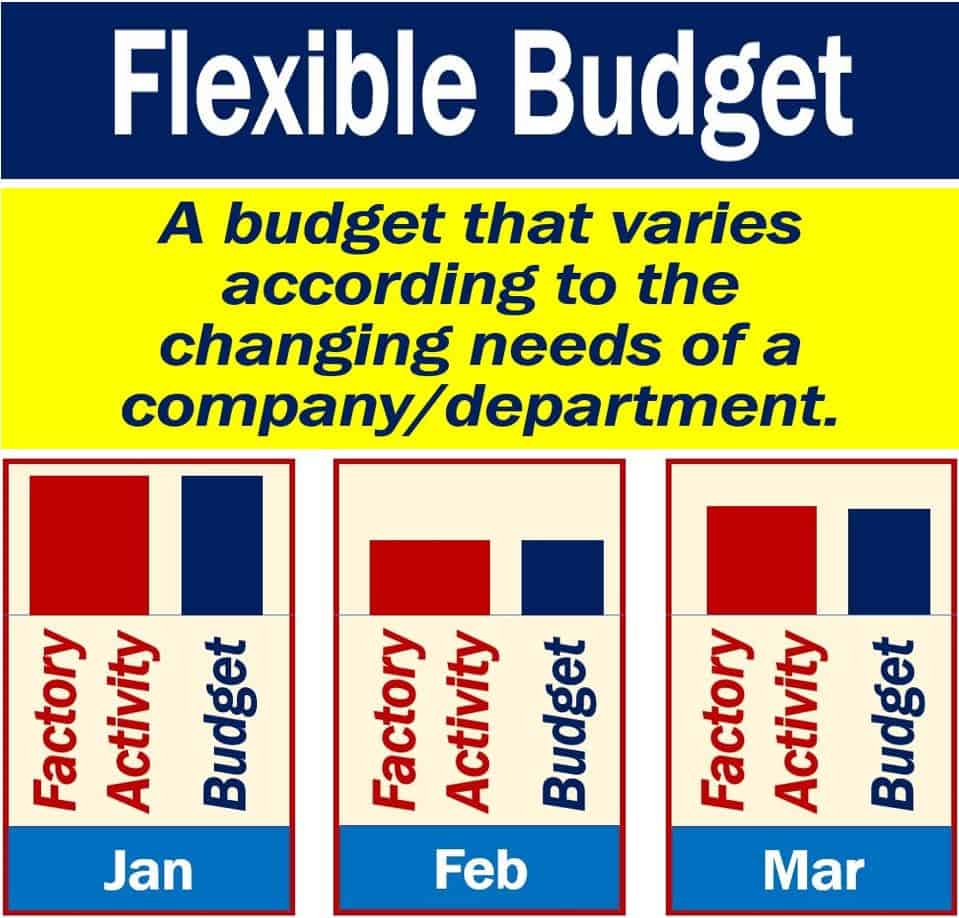A Flexible Budget is a budget or financial plan that varies according to the company’s needs. A flexible budget may refer to a whole company or a department. The designers of the budget made it flexible deliberately. They made it flexible because the specific company’s or department’s needs do not remain static.
This type of budget contrasts with a static budget. A static budget stays at a single amount regardless of how much activity there is.
Flexible budgets calculate, for example, different levels of expenditure for variable costs. These levels vary depending on the changes in revenue. Subsequently, the budget varies, depending on the activity levels that the company experiences. Such a budgeting method is particularly useful for businesses with fluctuating sales cycles, allowing them to align their spending more closely with their actual income.
Variable costs are costs that go up and down each month, i.e., they ‘vary.’

The flexible budget adapts
Flexible budgets adapt to the changing needs of a company.
Accountants enter actual activity measures into the flexible budget at the end of the accounting period. It subsequently generates a budget that ties in specifically with the inputs.
For control purposes, the accountant then compares the budget to actual data.
Flexible budget – example
Let’s imagine that a manufacturer has determined what its electricity and supplies costs are for the factory. It requires $8 per MH. MH stands for machine hour.
The company also knows that the depreciation, supervision, and other fixed costs come to about $35,000 per month.
Fixed costs do not change each month, i.e., they remain the same. Insurance premiums and rent, for example, are fixed costs.
Its production equipment operates, on average, between 3,500 and 6,500 hours per month.
According to this data, the monthly flexible budget would be $35,000 + $8 per MH.
4,500 hours in February
Let’s suppose the production machinery had to operate for 4,500 hours during February.
The flexible budget for that month would be $35,000 + ($8 x 4,500) = $71,000.
5,000 hours in March
What if the production machinery had to operate for 5,000 in March?
The flexible budget for that month would be $35,000 + ($8 x 5,000) = $75,000.
Flexible budgets make sense
If the factory has to use more machine hours one month, its budget should logically increase. Conversely, if it uses them for fewer hours, its budget should reflect that decline.
This responsive approach allows for more accurate financial forecasting and better resource allocation, aligning expenses closely with operational activity.
Using “flexible budget” in context
Below, you can see seven sentences containing the words “flexible budget,” which may help you see how we use the term in context:
- “The finance team prepared a flexible budget to accommodate the seasonal fluctuations in demand that the company typically experiences.”
- “During the quarterly review, management praised the use of a flexible budget for its ability to adjust to the actual production volumes.”
- “Small businesses often benefit from flexible budgets since they can adapt more readily to market changes and unexpected costs.”
